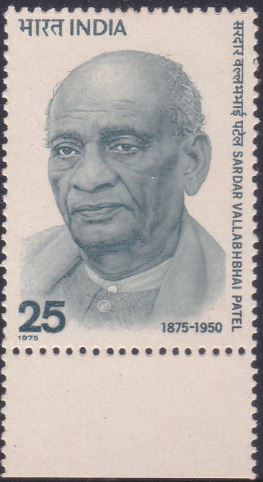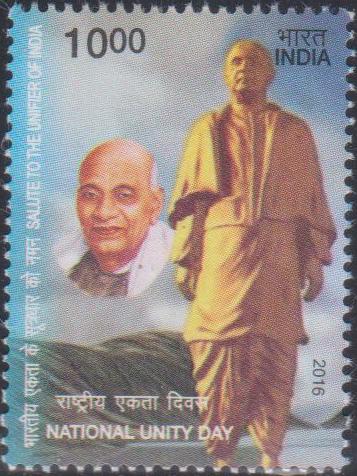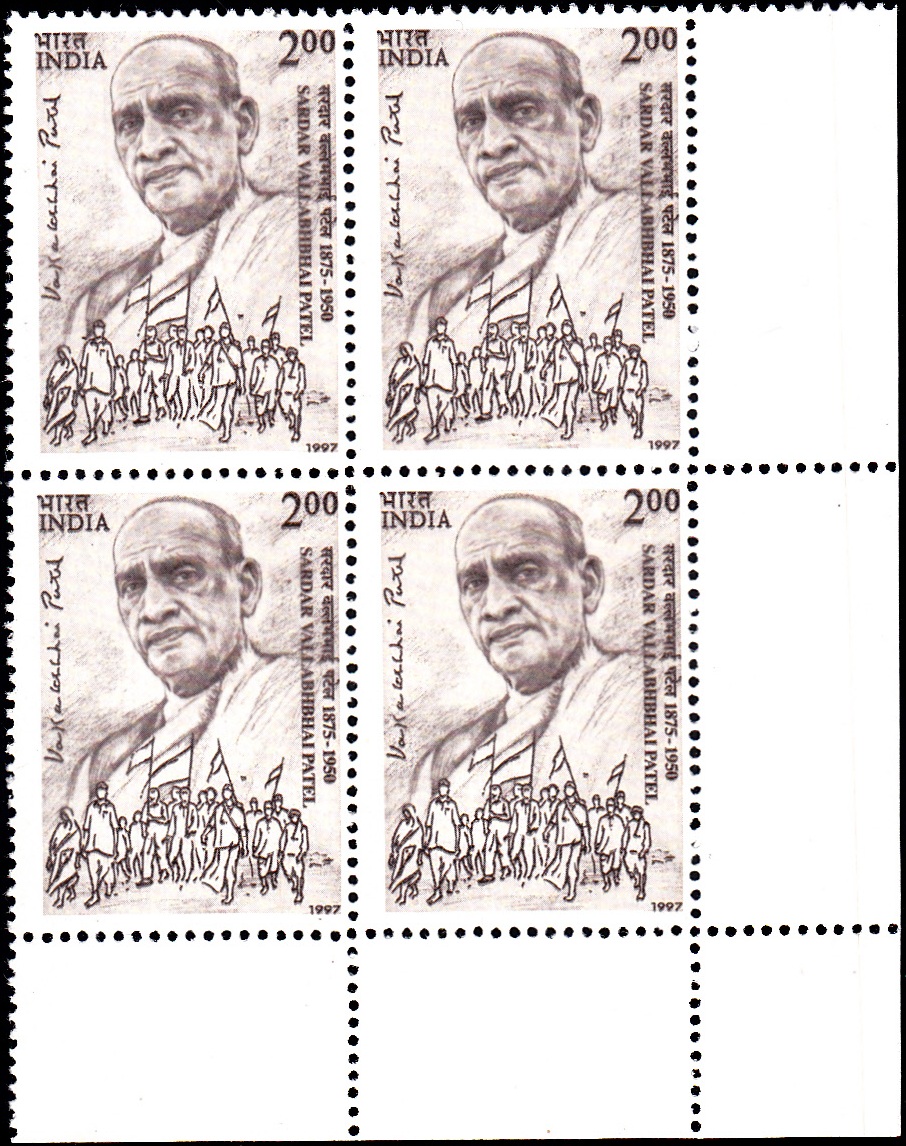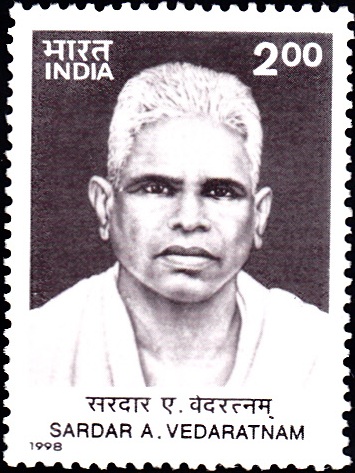
Sardar Vallabhbhai Patel 1975
A commemorative postage stamp on the Birth Centenary of Sardar Vallabhbhai Patel, 1st Indian Home Minister (1947-1950) :
Issued on Oct 31, 1975
Issued for : The Indian Posts and Telegraphs Department feels honoured to issue a special commemorative stamp on 31 October, 1975 on the occasion of birth centenary of Sardar Vallabhbhai Patel.
Type : Stamp, Mint condition
Colour : Grey
Denomination : 25 Paise
Overall size : 3.91 X 2.90 cms.
Printing size : 3.36 X 2.54 cms.
Perforation : 13 x 13
Watermark : Unwatermarked paper
Number printed : 30,00,000
Number per issue sheet : 35
Printing process : Photogravure
Designed and printed at : India Security Press
Name : Vallabhbhai Jhaverbhai Patel
Born on Oct 31, 1875 at Nadiad, Gujarat, Bombay Presidency, British India
Died on Dec 15, 1950 at Mumbai, India
About :
- Vallabhbhai Patel was born on October 31, 1875 at Nadiad in a typical peasant family of Gujarat. He passed the District Pleader’s Examination in 1900 and joined the legal profession at Godhra. Later, he became a barrister from the Middle Temple, practised at Ahmedabad bar and distinguished himself as a criminal lawyer. He made his debut in politics by joining in 1915 the Gujarat Sabha. The Godhra Session of Gujarat Sabha was presided over by Gandhiji in 1917. Vallabhbhai Patel was its Secretary. Thus began a long and fruitful association between the two.
- In 1918 Vallabhbhai came to the rescue of the sufferers of a devastating famine and, conducted, along with Gandhiji, the “no-tax” campaign in Kaira district for the suspension of the revenue assessment. In 1919, he organised demonstrations against the Rowlatt Bills, sold proscribed literature and published the Satyagraha Patrika. When Mahatma Gandhi gave the call for Non-cooperation, Vallabhbhai joined the movement by giving up his lucrative practice at the bar. In 1923, he, along-with his brother Vithalbhai, became involved in the Flag Satyagraha at Nagpur. The same year he resisted the Bombay Government’s levy of punitive tax on the people of Borsad and ultimately forced its withdrawal.
- Elected President of the Ahmedabad Municipality in 1924, Vallabhbhai introduced Gujarati as the official language and Khadi as the uniform in the municipal establishment. In 1928, he led the famous peasants’ agitation against an increase in land revenue at Bardoli and won a signal victory. Acknowledging his able leadership, Gandhiji described him as the “Sardar“. He later participated in the Civil Disobedience Movement and suffered imprisonment. In 1931, at the Karachi session, the Sardar was elected President of the Congress.
- Declining the leadership of the Congress Ministry in Bombay, Sardar Patel became Chairman of the Congress Parliamentary Sub-committee in 1936 and ably guided the functioning of the Congress ministries in various provinces. An active participant, in the Individual Satyagraha in 1940, he joined the “Quit India” movement in 1942 and was detained in Ahmednagar Fort and Yeravada Jail. A very able negotiator, be played a vital role in the discussions with Cripps in 1942, in the Simla Conference in 1945 and during the Cabinet Mission talks in 1946.
- Joining the Interim Government in September 1946, Vallabhbhai became the Minister in charge of Home Affairs, Information and Broadcasting. In the disturbed months that followed it was his firm hand, more than anything else, that maintained order in the country. In Independent India, he became the Deputy Prime Minister and looked after the Home and the States Departments.
- The Sardar‘s finest hour was when he accomplished the integration of the Indian States with the Union. For him, integration meant not only accession by the rulers but also transfer of their power to the people. India has been unified as never before, and the saga of this achievement has passed into history.
- A stern realist and a great organiser, the Sardar was a man of iron will who never allowed personal sentiments to interfere with his duties to the nation. His country was his first love and in the words of his daughter, ‘To the last, he was thinking of the nation‘.








[…] in an orthodox Saiva Vellala community, A. Vedaratnam Pillai was deeply influenced by Gandhiji, Vallabh Bhai Patel, Vinoba Bhave, Avinasilingam Chettiar, N. M. R. Subbaraman, O. P. Ramaswami Reddiar and C. […]
[…] one Battalion mainly to assist the Princely states to maintain law and order. After independence, Sardar Vallabhbhai Patel, the then Home Minister, visualised a multi-dimensional role for the Force and rechristened it as […]
[…] He was deeply influenced by Lokmanya Bal Gangadhar Tilak, Mahatma Gandhi, Jawaharlal Nehru and Vallabhbhai Patel during his lifetime. Swami Ramkrishna Paramhansa and Swami Vivekananda also left a deep impress […]